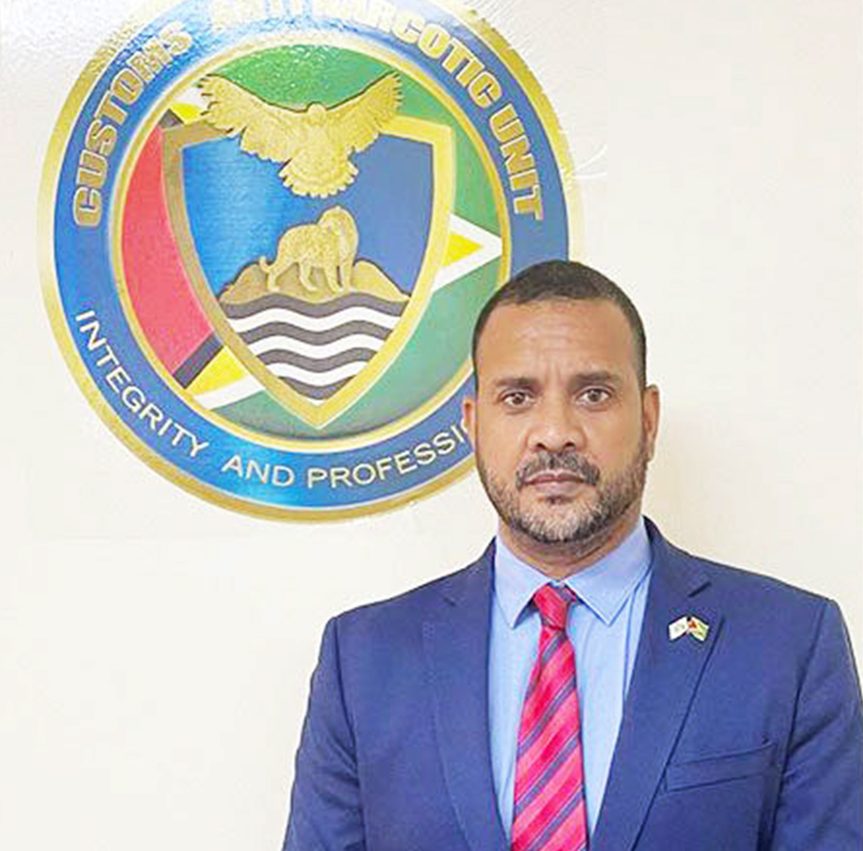The Customs Anti-Narcotics Unit (CANU) has indicated that the vessel that was caught by the Spanish authorities with one ton of cocaine just a few weeks ago, left the shores of Guyana without the drugs, which were subsequently loaded at sea.
CANU offered this information in a press release on the matter in which a ton of cocaine was found on the Guyanese fishing vessel “Matthieu”.
“We can say without fear of contradiction by our international partners that Guyana played an integral part in this operation and continues to be part of the ongoing investigation since it involved a trans-Atlantic drug trafficking network,” the release said. “While the vessel ‘Matthieu’ is Guyana registered and did not depart from Guyana without getting the necessary clearance from MARAD, there is strong intelligence that the vessel was loaded at sea coupled with the fact that when intercepted, there was equipment on deck that was used in the transfer of heavy cargo while at sea, as seen in other seizures.”
Just a few weeks ago, Stabroek News broke the news that four Guyanese and two Albanians were arrested after they were found on a Guyanese-registered boat containing one ton of cocaine, prompting local authorities to launch an investigation in Guyana.
It was explained that the fishing vessel “Mathieu” was spotted without a flag in the Atlantic some 1,100 kilometres off Cape Verde and according to a release from the Tax Agency of Spain, its Customs Surveillance Service in a joint operation with the National Police and the Portuguese Police intercepted the vessel with its cocaine cargo. Patrol boat “Fulmar” then towed it to the port of Arrecife in Lanzarote, where it was unloaded.
“The operation was carried out in collaboration with the American agency DEA [Drug Enforcement Administration] and the Spanish Navy. The six crew members of the vessel were arrested…,” the Spanish release said.
According to the release, the bust came as a result of the existing international channels for the fight against drug trafficking, through which information was received from the US agency. The information alerted to the existence of an international criminal organisation that would seek to carry out the transfer of a large amount of cocaine from one vessel to another at sea.
It disclosed that after receiving the information, the National Police coordinated with Customs Surveillance of the Tax Agency to find the point where the vessel was located. The interception was finally carried out by the “Fulmar” in the Atlantic, 600 miles from Cape Verde.
“From here, the authorities of Guyana were asked to confirm the registration of this vessel in their country and to authorise its transfer to the nearest Spanish port,” the release disclosed.
When the vessel was searched, the agents found 40 bundles of pellets that are normally used for the transfer of the cocaine hydrochloride on the stern cover. The six crew members were arrested and were transferred onboard the “Fulmar.”
While they were unloading the boat, 40 large bales of cocaine were discovered hidden under the deck. In total, the cocaine weighed 1,000 kilos.
CANU also indicated that in relation to the “Matthieu” bust, it had played a vital role.
“This is one of numerous operations for the year in which Guyana has played a crucial role that has resulted in the seizures of several tonnes of cocaine and the arrests of several individuals. These operations involved the transfer of drugs at sea using vessels that passed through our EEZ, and in one case, the vessel collected cargo in Guyana and was then loaded with cocaine after it departed our waters,” CANU noted.
It added that these operations were all coordinated with international partners, and were a demonstration of the government’s willingness to work to ensure that the country did not become a transshipment hub for narcotics, as well as the confidence in local law enforcement agencies to deal with complex operations of this nature.
CANU added that “these drug busts are the best indicator of the true situation of the narco-trade in Guyana, and there is nothing to be gained by public gloating over present victories and possibly revealing information that would be useful to narco-traffickers in their evolving efforts to avoid detection.”






